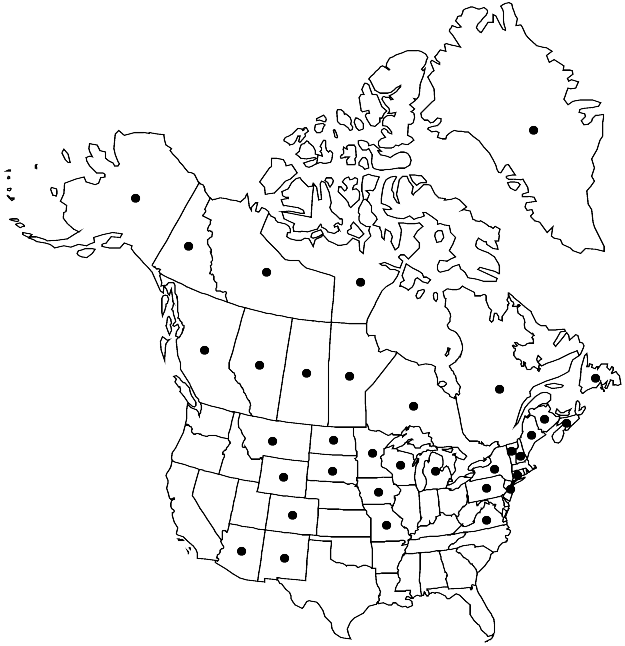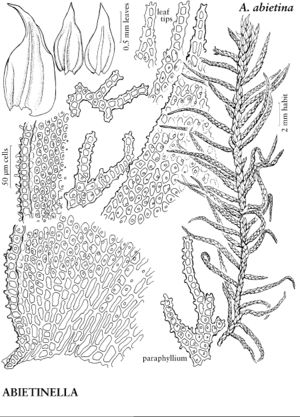Abietinella abietina
Musc. Buitenzorg 4: 1497. 1923.
Plants dark green, yellowish-brown, or dark-brown, sometimes blackish tinged. Stems to 12 cm; branches short, unequal, tapered; paraphyllia many. Stem-leaves erect when dry, erect-spreading when moist, orange at insertion, plicate, 1.2–1.8 mm. Branch leaves erect when dry, erect-spreading when moist, 0.6–0.7 mm; costa strong. Perichaetial leaves to 4 mm. Seta 2–2.5 cm. Capsule yellowbrown, 2–3 mm. Spores 9–11 µm, finely papillose.
Phenology: Capsules mature late summer.
Habitat: Dry, exposed calcareous rock and soil, sand of partially stabilized dunes, talus at base of cliffs, humus in open, coniferous forests
Elevation: low to moderate elevations
Distribution

Greenland, Alta., B.C., Man., N.B., Nfld. and Labr. (Nfld.), N.W.T., N.S., Nunavut, Ont., Que., Sask., Yukon, Alaska, Ariz., Colo., Conn., Iowa, Maine, Mich., Minn., Mo., Mont., N.H., N.J., N.Mex., N.Y., N.Dak., Pa., S.Dak., Vt., Va., Wis., Wyo., Europe, Asia
Discussion
Abietinella abietina is the easiest of the Thuidium-like plants to recognize in the flora area, in part because of its distinctive habitat requirements. The stems are 1-pinnate, erect-ascending, and often occur in extensive, lax mats. Paraphyllia are abundant on stems and branches, but are usually not nearly as strongly branched as in Thuidium in the narrow sense. Abietinella abietina is widespread throughout the northern part of the flora. The capsules of this species are very rare. Unlike Thuidium, Abietinella is papillose on both leaf surfaces rather than just the back.
Selected References
None.
